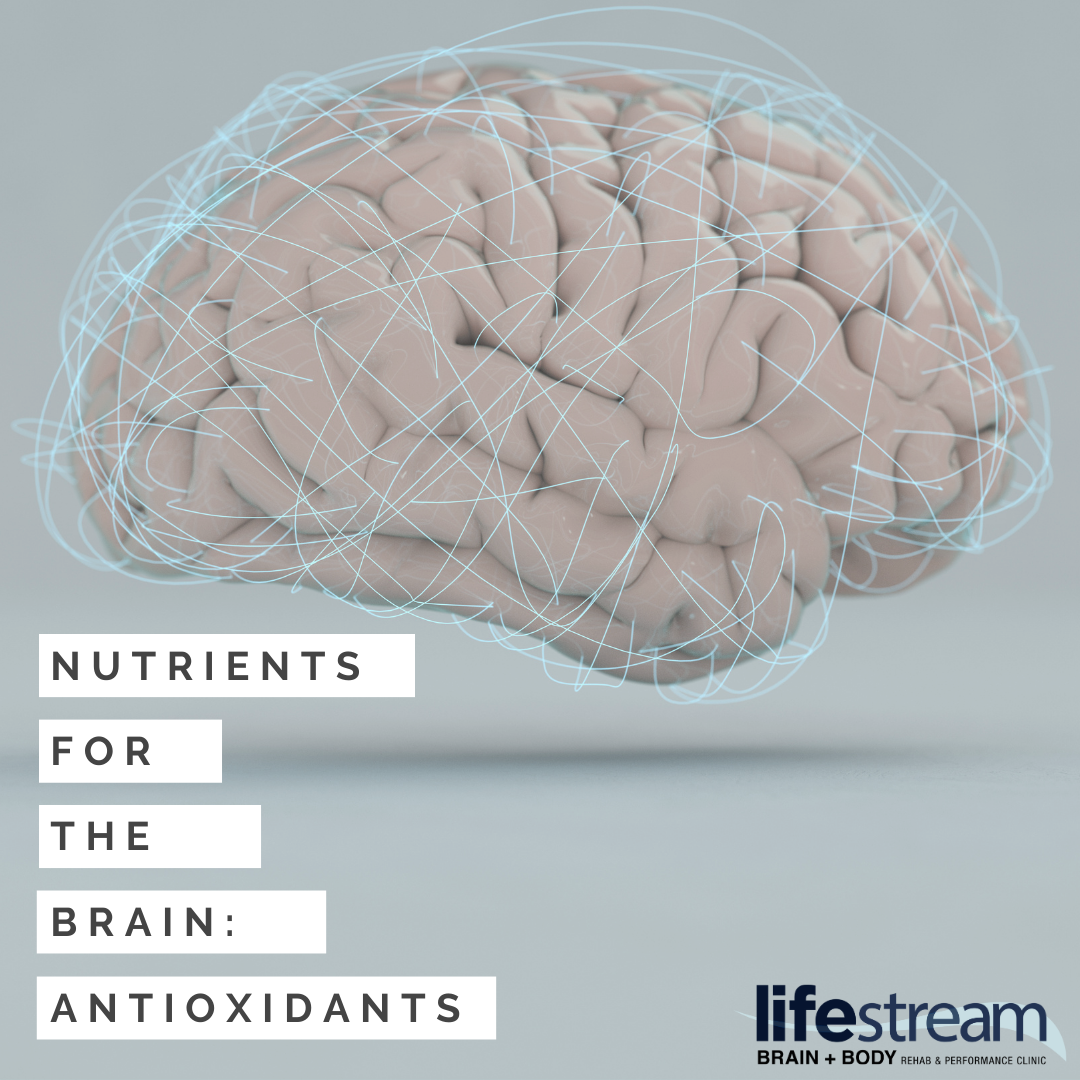Nutrients for the Brain: Antioxidants
In our next installment of our Brain Healthy Nutrient series, we are going to talk about antioxidants and how they are beneficial for brain health.
Although the brain weighs roughly 3 pounds (roughly 2% of your body weight), it consumes 20% of the body’s oxygen and 20-25% of the body’s circulating glucose (sugar). The oxygen is required to sustain its high energy needs.
Oxygen is absolutely necessary for the brain to function. Oxygen, however, can give rise to free radicals or reactive oxygen series. The brain is highly diverse organ in how it uses energy which means that it is also highly susceptible to oxidative stress. Oxidative stress is an accumulation of these free radicals in the body that can cause adverse effects. These free radicals can disturb the cell membranes in the brain (which are made up of types of fatty acids that are particularly susceptible), cause breaks in DNA, and can modify proteins (which disrupts their function). This is not good at all. The brain also makes minimal antioxidants on its own which increases its susceptibility.
This is where antioxidants come in. “Anti” means against and “oxidant” means oxidation. Therefore, antioxidants combat the free radicals that result from the oxidation of a particular molecule (it can be oxygen or other compounds). They are able to become oxidized themselves which essentially neutralizes the harmful free radical.
The body has its own antioxidant defense system which it activates when oxidative stress and damage is present. The molecules involved (mostly enzymes and other antioxidants) work to repair damaged DNA and remove oxidized proteins and lipids (fats). Antioxidants (from the diet or made in the body) help to protect the body in this way.
Here are several elements and vitamins involved in the body’s antioxidant systems:
– Selenium: Se plays a role in the antioxidant systems, thyroid function, and immune function. It is neuroprotective by inhibiting the destruction of neurons and anti-inflammatory.
– Zinc: Zn increases the activation of these enzymes involved in the antioxidant systems and inhibits the enzymes that cause oxidation.
– Vitamin C: Vitamin C can directly neutralize free radicals and repair other antioxidants.
– Vitamin E: Vitamin E is an antioxidant itself and helps to protect from the oxidation of cell membranes (like discussed above) and also helps inhibit the destruction of neurons.
– Vitamin A: Vitamin A, and specifically carotenoids (that’s what makes carrots orange), also act as direct antioxidants.
Here are some good dietary sources of antioxidants:
– Polyphenols: Found in berries like blueberries, cherries, and strawberries, tea, chocolate, wine, and spinach.
– Selenium: Found in brazil nuts, fish, shellfish, beef, and poultry.
– Zinc: Found in oysters, beef, pumpkin seeds, and poultry.
-Vitamin C: Found mostly in fruits and vegetables such as citrus fruits (lemon, orange, etc.), cantaloupe, grapefruit, broccoli, bell peppers, and tomatoes.
– Vitamin E: Found in almonds, avocados, sunflower seeds, peanuts, etc.
– Carotenoids (think yellow, orange, and red): pumpkin, carrots, sweet potato, tomato, mangoes, bell peppers, etc.
Sources:
https://www.ncbi.nlm.nih.gov/pmc/articles/PMC2805706/#R85
https://www.ncbi.nlm.nih.gov/pmc/articles/PMC5881419/
https://www.ncbi.nlm.nih.gov/pmc/articles/PMC3900881/
https://pubmed.ncbi.nlm.nih.gov/15134560/
https://www.ncbi.nlm.nih.gov/pmc/articles/PMC7582347/
https://www.ncbi.nlm.nih.gov/pmc/articles/PMC2835915/
https://www.hsph.harvard.edu/nutritionsource/antioxidants/
https://ods.od.nih.gov/factsheets/Zinc-HealthProfessional/
https://health.clevelandclinic.org/what-do-antioxidants-do/

